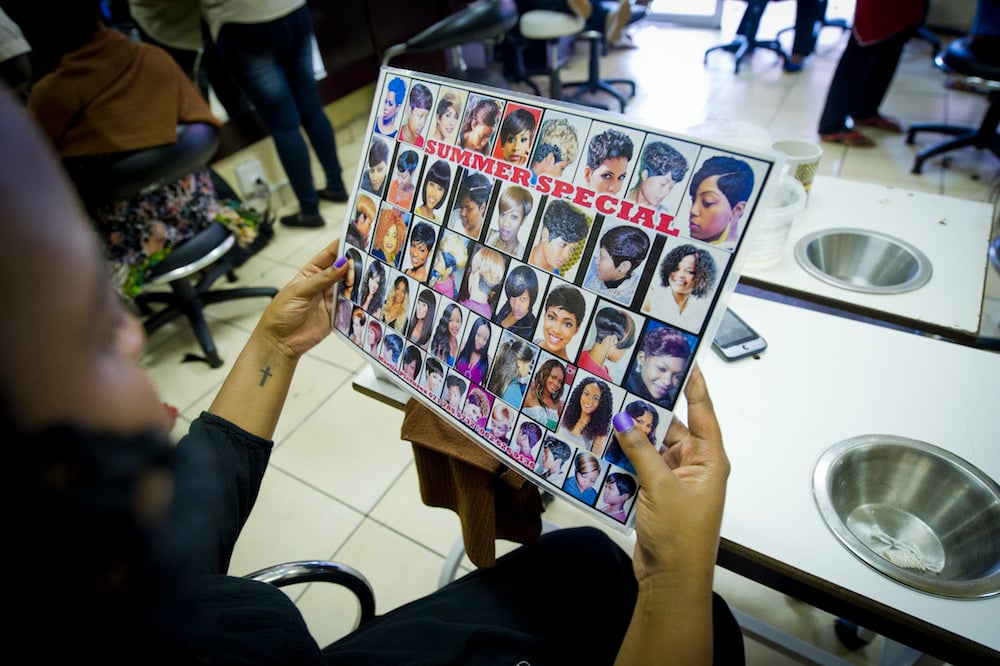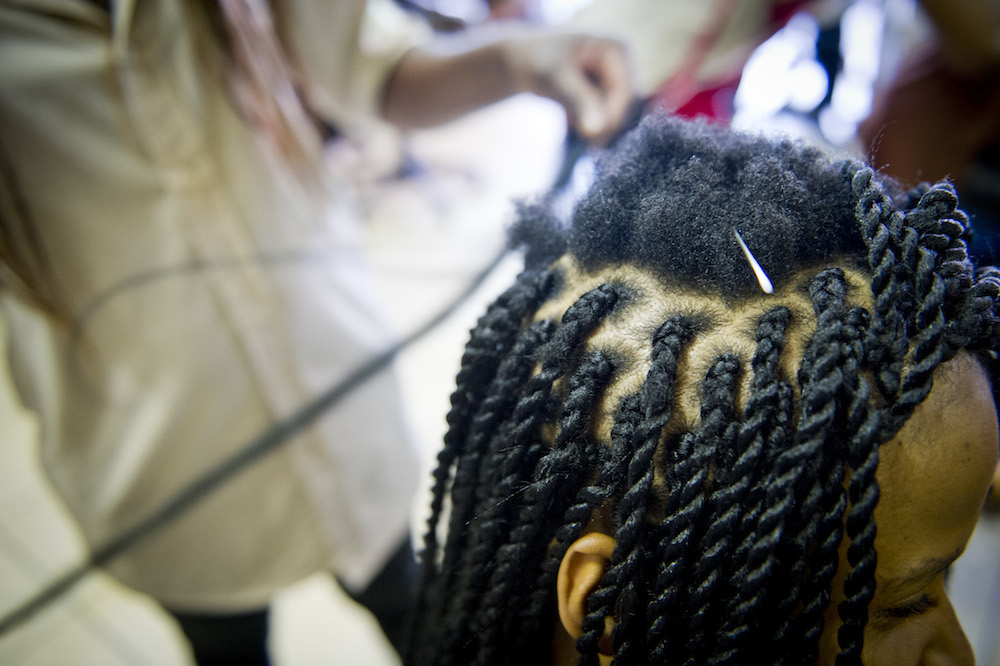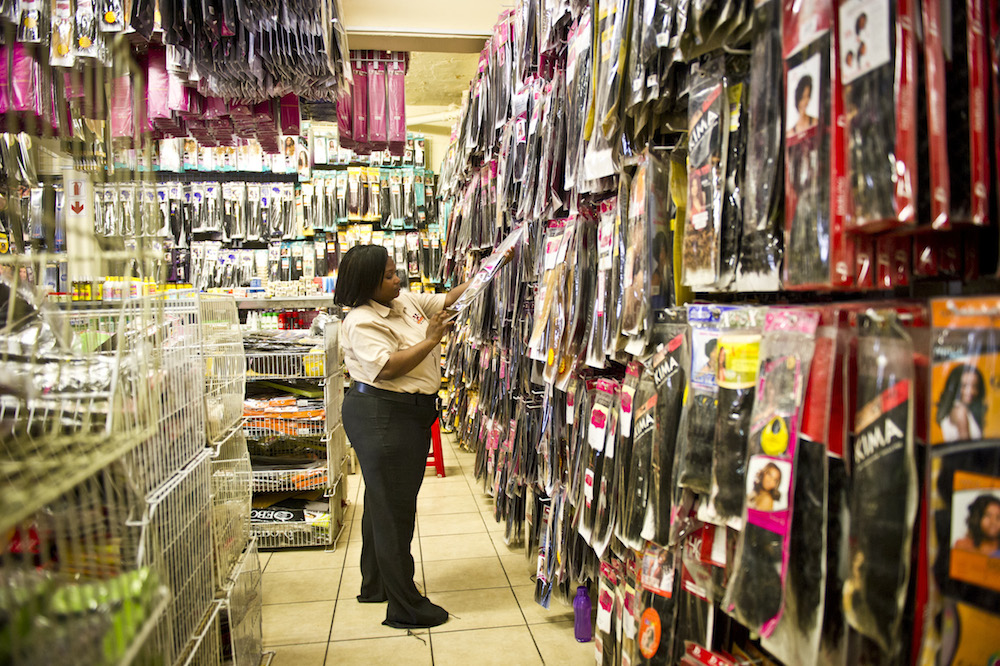Running was a joy for Jackie Meckler.
Getting my hair done has become a ritual of sorts. It happens about every four to six weeks. I wake up early on a Saturday morning and hurry to the hair salon before rush hour. On this particular Saturday it is month-end weekend, which means that most, if not all, the salons in Braamfontein, Johannesburg, would be packed.
My favourite salon is the one that sells all my preferred hair products and fibres – doing my hair there is a breeze as I don’t have to source the fibre for my braids elsewhere.
After I pay for my fibre, the owner, My Friend, as we fondly call each other, walks me to the other side of the salon where my hair will be braided. The room is always filled with an array of sounds: from the music and dramatic dialogue coming off the Nollywood film playing on the TV to the conversations between both customers and hairdressers – but mostly hairdressers. Aesthetics aside, this is a typical black hair salon – not like the ones I used to go to back home, which were mostly shacks and had no running water.

The photo menu in the salon.
My Friend shouts: “Long twists” and one hairdresser jumps off her seat and signals me to come and sit down. She smiles and introduces herself as Maria.
Maria’s receding hairline and artificial eyelashes become my focal point as she inspects my hair. Although she tries to hide the frustration on her face, she is not at all pleased with my hair.
“Mama, do you want a relax before I plait?” she asks. I say no. “Even a blowout?” she continues. I say no again. A blowout is a way of chemically relaxing hair without completely straightening it. It’s used to loosen tightly coiled hair, like mine, without losing its Afro texture.
I tell Maria that I don’t need a wash because I washed my hair the night before. She is not happy with me, but she reluctantly complies with my request – after all, the customer is always right.
She, and many other hairdressers before her, want to know why I make their job so hard. Why I don’t just chemically straighten my hair or at the least just let them blow it out so they can plait it with ease?
As always, I smile (and occasionally tweet) through my annoyance at this conversation. If I could I would rather lash out at Maria and all the other hairdressers who make it a point to tell me that my hair, the way it comes out of my scalp, is a nuisance. But instead I smile and ask her why she doesn’t like my Afro-textured hair.
“Mama, your hair is tough and there’s a lot of it. Hair looks nice when it can be combed. Yours is just too much,” she explains to me.
I have to listen to the woman I have entrusted with my hair shaming it for the next six or so hours. In between that, her fellow hairdressers will also make remarks and roll their eyes when she tells them why I do not relax my hair. This and other similar encounters I have had in many for-black-hair salons reminds me that our hairdressers do not care about black hair.
But can we blame them? What makes black hairdressers care so little about the very hair that crowns their heads? Is it just a simple case of bad customer care?

Halfway done. Hairdressers are annoyed when a customer doesn’t give in to the pressure of first having their hair chemically treated to ease a comb-through.
During apartheid, black female wardens at the Women’s Jail in Hillbrow were forced to wear berets as part of their uniform but their white counterparts weren’t compelled to. Today, school policies equivocate that natural hair is either “exotic” or “untidy”. It is difficult to see black hair, or blackness, as anything but political.
Not only is it political, it is also a multimillion-rand business – in 2014 the South African black hair industry was worth R4.5-million, according to reports.
Black women spend lots of money and time getting their hair done but these salons are not high-end and as bourgeois as their counterparts situated across the multitude of Johannesburg suburbs.
You don’t get a neck or head massage or even a complimentary glass of your favourite champagne or wine – in fact, you are lucky if the comb that is used to part your hair has been cleaned before it is used on you.
Our hair and the places we go to get it done tell a deeper issue of the economic disparities that exist in this country. Black hair salons should be a place were black women fall in love with their hair, and a place where it is affirmed. Instead, these are a places of political warfare and self-preservation where we are constantly defending our beauty and how we choose to express it through our hair.
Great hair care and the customer care that accompanies it should not only be found in expensive salons that are not affordable for most black women – myself included.

A large choice in available fibre in a one-stop salon makes it easier to have one’s hair done.